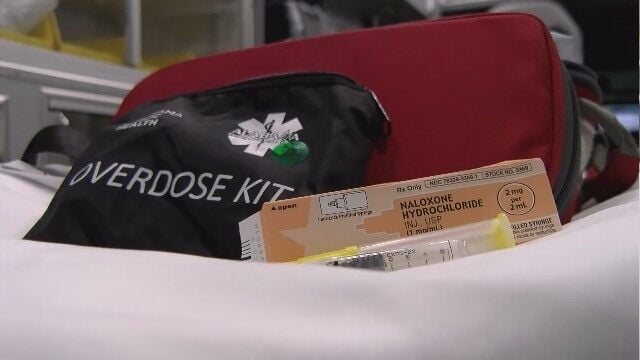Part 2 of Ãå±±ÂÖ¼é's series, "Poisoned: Alabama's Fentanyl Crisis," continues in Marshall County.
Last year, there were at least 20 confirmed overdose deaths in Marshall County, according to Marshall County Coroner Cody Nugent.
Only four months into this year, and they're already closing in on that number — numbers that have increased greatly over the past few years.
Unfortunately, this a trend playing out across the country, as overdose deaths are on the rise.
"Just this year, I would estimate we've had at least a dozen or more drug-related deaths as far as from fentanyl," Nugent said.
The people who've died are from all walks of life.
"We see young victims from early 20s all the way to 40s and 50s, even older at times, who are using drugs and are overdosing on fentanyl," Nugent said.
Drugs are making their way around the county, in no particular area, according to the Marshall County Drug Task Force.
Nugent said what's happening in some cases is frequent drug users might not realize the drug they're used to taking is now laced with fentanyl.
"There have been a couple of cases where we've seen carfentanil pop up in some of our drug screens, and that's even more potent than just fentanyl," Nugent said.
According to the Drug Enforcement Administration, carfentanil is a synthetic opioid that is 10,000 times more potent than morphine and 100 times more potent than fentanyl.
Typically, it's used as a tranquilizing agent for elephants and other large mammals.
So, what's the solution? What can potentially be done to try to prevent any more overdoses and drug-related deaths?
Nugent told Ãå±±ÂÖ¼é's Brittany Harry that education is a huge part of it.
"These aren't controlled substances," Nugent said. "These are substances that people are just manufacturing with what they have available, so you cannot guarantee what's in them. So I feel like education is going to be a huge part in that."
With the recent increase in overdoses, Nugent worked with the Alabama Department of Mental Health and Alabama Department of Public Health to get Narcan for those he works closely with.
Join us again Wednesday on Ãå±±ÂÖ¼é News at 10 for Part 3 of this series, which features a local recovery center.














